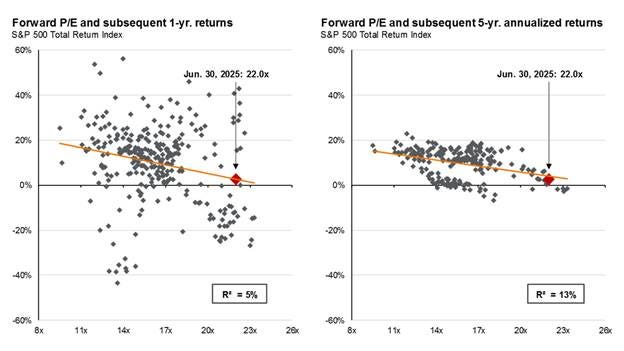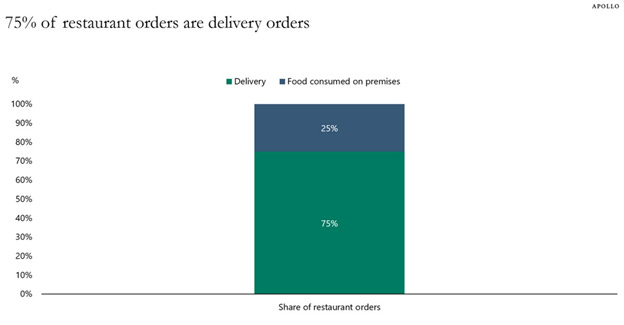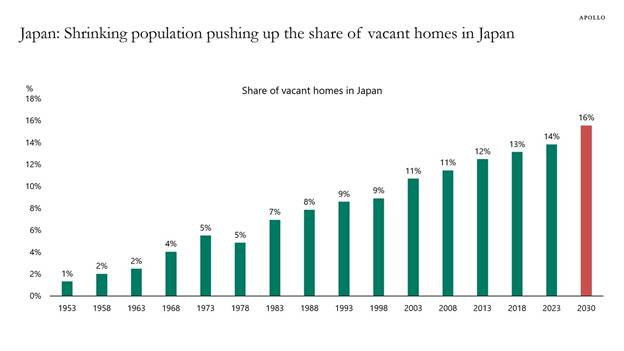The Risk of Expecting Too Much

The belief that there is little risk creates a perverse outcome: people behave more recklessly, thus increasing actual risk. – Howard Marks
I came across this Morningstar article, citing a Natixis survey, that found US investors expect stocks to generate long-term returns of 12.6% per year above inflation.
But that isn’t how investing works.
First, historically, stocks have only generated somewhere between 6 – 8% returns above inflation over the long run.
Second, long-run returns are largely a function of the starting valuation. When starting valuations are higher, like they are today, future returns tend to be lower.
Take this chart from JP Morgan’s Guide to the Markets as an example.

Over the course of a year (as shown in the chart on the left), anything is possible. When valuations are relatively high, there are plenty of historical data points to suggest that the market could continue to move significantly higher.
However, over five years (as shown in the chart on the right), things tend to become less random.
This isn’t to say it is time to sell stocks. Lower expected returns are not the same as bad returns.
It is simply a reminder that if your financial plan requires annual returns of 12% to succeed, it may be time to reevaluate your plan.*
*Dave Ramsey suggests retirees should expect a 12% annualized rate of return and 4% inflation, which can sustain an 8% withdrawal rate. I tend to disagree.
Unrelated but Interesting Charts
I often come across charts that are more interesting than they are important. Here are two of those charts:
Personal Note:
Last week, we celebrated the birthdays of my wife and her mom with a family cruise that started in Rome and continued to Salerno, Sicily, Santorini, Ephesus, Mykonos, and Athens.
Few things in life make me happier than forcing my family members to wear matching Hawaiian shirts, so this picture was a big win for me.







Wonderful adventure ! Super images & personal comments .
Financial investment review / comments - very informative. I agree with U .
When it comes to writing about investments, the disclaimers are important. Past performance is not indicative of future returns, my opinions are not necessarily those of TSA Wealth Management, an SEC-registered investment advisor, and this is not intended to be personalized legal, accounting, or tax advice etc.
For additional disclaimers associated with TSA Wealth Management please visit https://tsawm.com/disclosure or find TSA Wealth Management's Form CRS at https://adviserinfo.sec.gov/firm/summary/323123